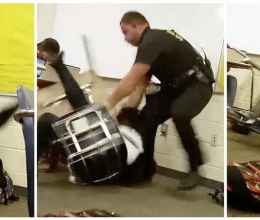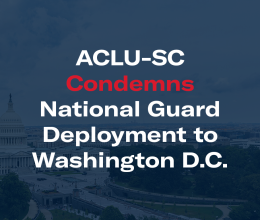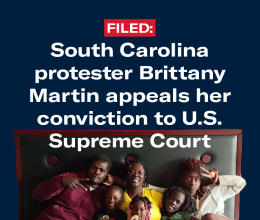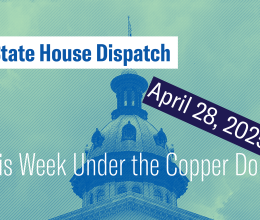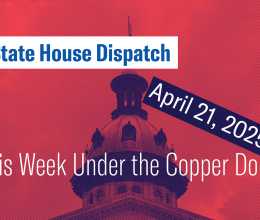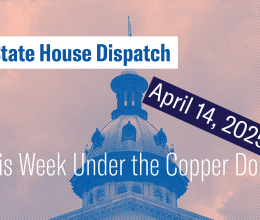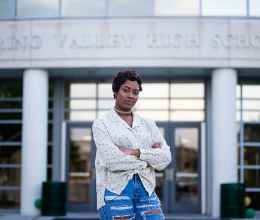
Several current and former South Carolina high school students, their families and a nonprofit mentoring program are challenging a state law they claim wrongly criminalizes a "large swath of adolescent behavior" in the name of maintaining order in the classroom.
In a complaint filed in the Charleston Federal Court, Susan Dunn of the American Civil Liberties Union, which it representing the plaintiffs, argues that S.C. Code § 16-17-420, commonly referred to as the "Disturbing Schools" statute, creates an impossible standard for students to follow by labeling "any 'interference' or "disturbance' of a school, any act of 'loitering' and any 'obnoxious' action" as a criminal act.
Moreover, Dunn says, because of overly-broad and vague wording of the statute, it's impossible for police to enforce it with any kind of consistency and fairness.
"The Disturbing Schools statute ... chills the ability of students to speak out against abuses and to participate in conversations about policing of their own classrooms and campuses," the August 11 complaint says.
To a disturbing extent, Dunn argues, the burden of the law falls most often on black students and those who are diagnosed with mood or conduct disabilities.
The plaintiffs in the case are four students who say they have been adversely impacted by the Disturbing Schools statute, their guardians, and Girls Rock, Charleston, which is a nonprofit mentorship program for at-risk youth.
The Defendants are S.C. Attorney General Alan Wilson, and several local police departments, including those in Charleston, Richland and Greenville counties.
The statue was put into place 100 years ago. The complaint states the law's original intent was not to apply to students rightfully attending their own schools. However more recently the law has been invoked to draw thousands of youth into the criminal justice system, according to the complaint. It states the Disturbing Schools statue is consistently one of the leading sources of referrals to the South Carolina Department of Juvenile Justice.
While the statue has impacted thousands of students, black students across the state or four times more likely than white classmates to be subjected to the Disturbing Schools charge. However in Charleston County black students are six times as likely to face charges regarding the Disturbing Schools Law than white students, according to the complaint.
Also, the type of incidents that lead to both Disturbing Schools and Disorderly Conduct charges can not be distinguished from behaviors that schools address without resorting to the criminal justice system. Behaviors such as cursing, refusing to follow directions or a physical altercation that didn't cause significant injuries, the complaint says.
Students as young as 7 years old have been charged with Disturbing Schools, according to the complaint.
Enforcement of the Disturbing Schools statues has allegedly been inconsistent. The complaint states, "School Codes of Conduct from across the state reflect the inability to distinguish criminal Disturbing Schools or Disorderly Conduct from minor school infractions. According to Codes of Conduct, students may experience consequences ranging from a verbal warning to criminal charges for the same behaviors."
The attorney general has issued opinions that state the Disorderly Conduct statue can be applied to prohibit foul or offensive language toward a principal, teacher or law enforcement officer. The complaint also states the Attorney General said students who refuse to leave school campus or a bus when asked could be subject to the statue.
Only one of South Carolina's 46 counties -- Chester County -- has never had a student charged under the Disturbing Schools statute. As a result, it's the only county whose sheriff's department has not been named as a defendant.
The plaintiffs seek declaratory and injunctive relief, declaring the statute unconstitutional and unenforceable, the expungement of the criminal records of any student or former student charged under it, and other relief as determined by the court.
Representatives of the defendants, including the attorney general, did not immediately respond to calls from Courthouse News requesting comment.

